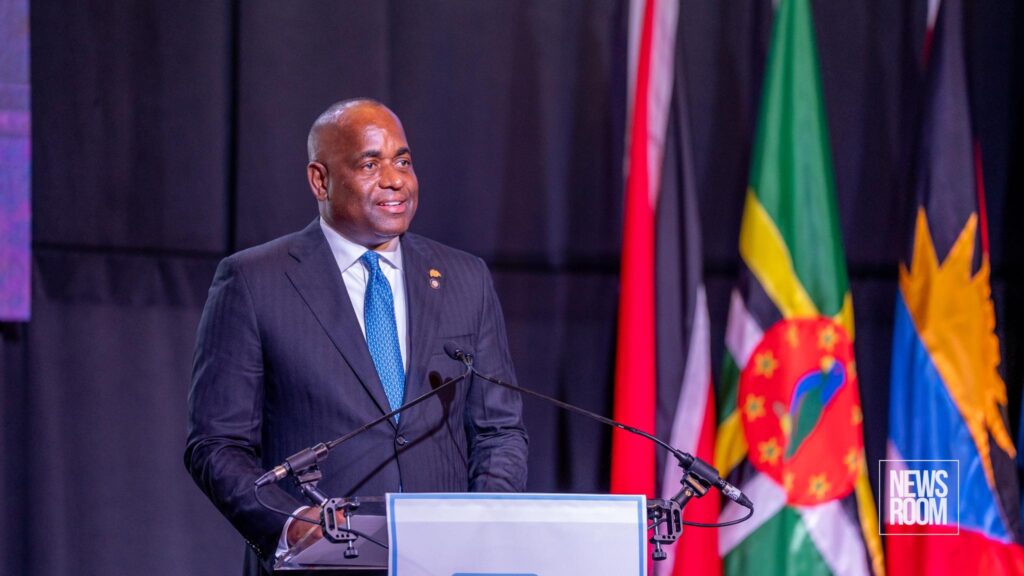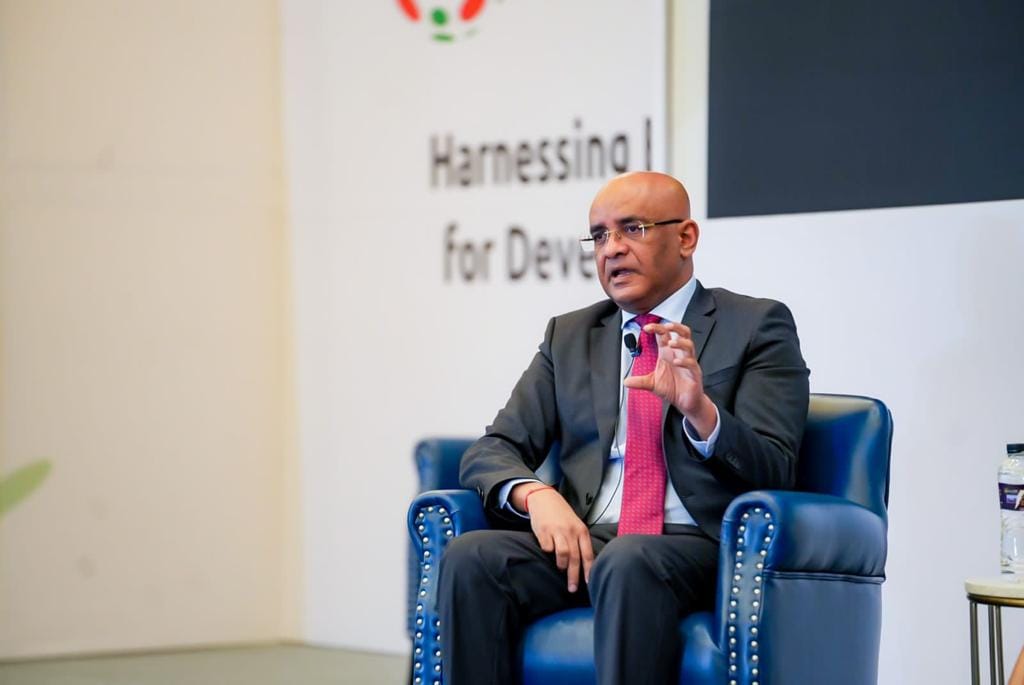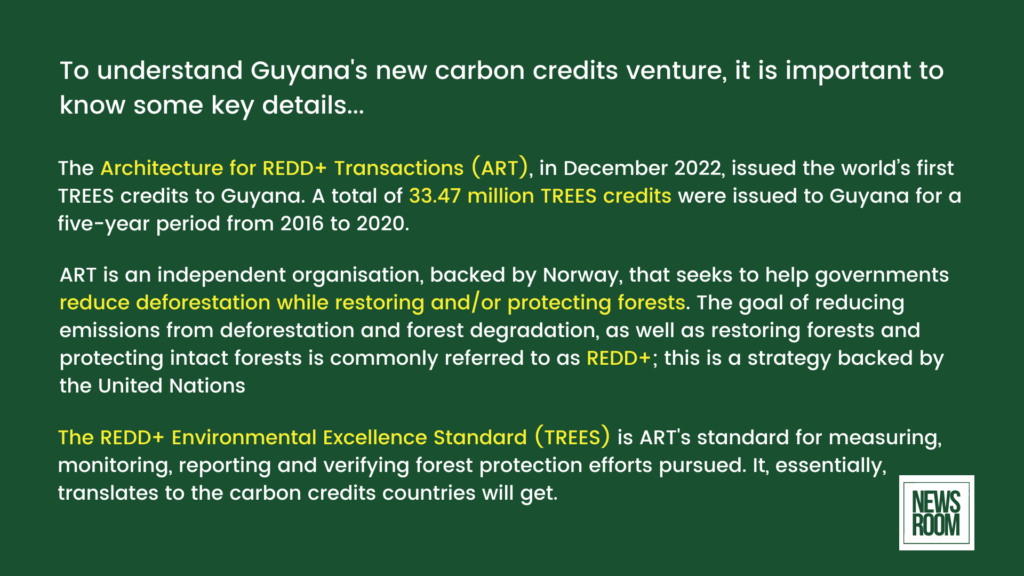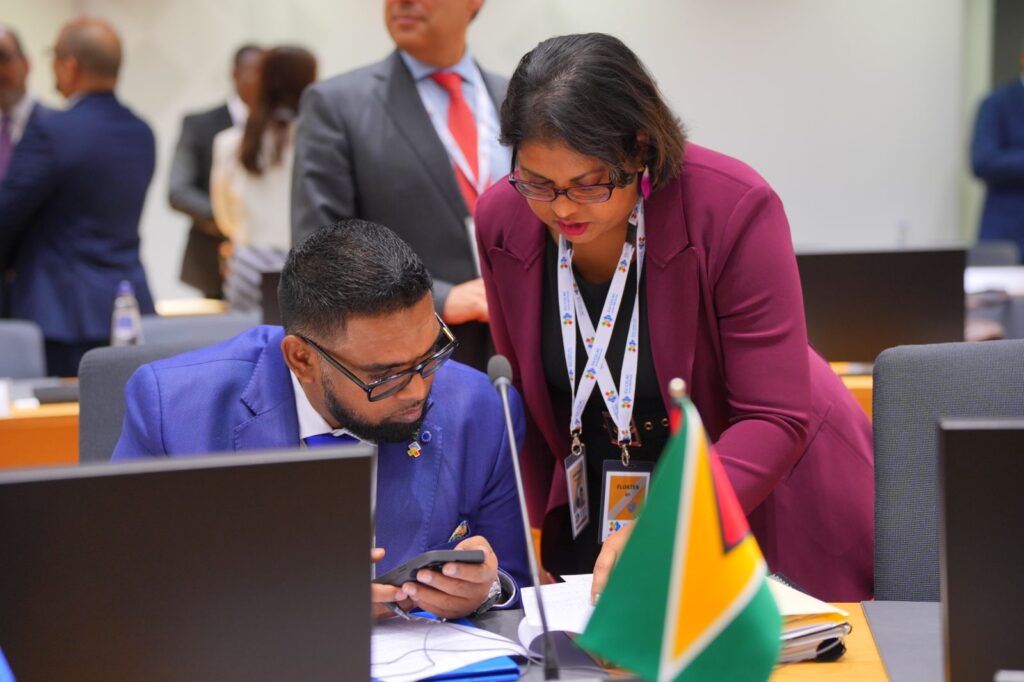Caribbean countries need money- and lots of it- to protect themselves from disasters like flooding, droughts and storms made worse by climate change.
And the incumbent Caribbean Community (CARICOM) Chairman Roosevelt Skerrit says these small, developing nations are in no mood to continue talking about their woes or accept more unfulfilled promises of financial support.
Instead, Mr. Skerrit assured Caribbean citizens that their Heads of Government will boldly participate in the upcoming United Nations Climate Change Conference, called COP28, that will be held in Dubai.
“… the whole idea is for us to ensure that at this COP28 that there is really no talking really and no promises.
“We have to come out of COP28 with concrete action, concrete decisions,” Skerrit, who is the Prime Minister of Dominica, said at a press conference held at the Hyatt Regency Hotel in Port of Spain.

The bloc wants to present a united front at the upcoming COP. The Heads of Government should decide on the regional approach for COP28 at a retreat in Dominica on August 18 and 19.
Already though, climate financing is a huge concern for CARICOM.
For years, Caribbean countries have pleaded with developed nations to honour their commitment and deliver on the US$100 billion climate fund they pledged. That money would help the small, developing states in the region arm themselves against worsening natural disasters like floods and storms.
Or it would help them shift their dependence on harmful fossil fuels.
Some countries in the region believe that the funds aren’t trickling down fast enough, if at all, leaving them exposed to the worsening impacts of the climate crisis.
Guyana’s carbon credits venture
These financing woes, at least in part, motivated Guyana to get into the carbon credits market.
Guyana’s Vice President Dr. Bharrat Jagdeo has consistently argued that his country needs more money to protect against rising sea-levels and other disasters worsened by the climate crisis. But with enough examples of the havoc those disasters can wreak, he says the country can’t wait on promised finances to trickle down.
“We can’t wait for climate funds or adaptation funds to come through the global mechanism.
“Most countries in the region are waiting, we can’t wait,” the Vice President said at the International Energy Conference hosted in Guyana in February.

Two months before, Guyana capitalised on its vast rainforests that store about 19 gigatonnes of carbon dioxide, a greenhouse gas that contributes to climate change.
The country inked its first and only carbon credit deal so far- brokered after the country got special carbon credits issued to it last December- with the Hess Corporation, a US oil giant and one of the companies searching for and producing petroleum in the country’s nascent oil and gas sector.
By the end of 2030, Guyana should amass at least US$750 million from the deal inked with Hess and 85% of the sum, the Vice President said, will be spent on funding projects to help the country protect against at least one natural disaster- flooding. According to him, about US$2 billion is needed to protect the country against flooding and other climate disasters.
Local Indigenous communities should get the remaining 15%, which equates to at least US$112 million, as stipulated by Guyana’s Low Carbon Development Strategy (LCDS).

Because the country still needs more money to protect its vulnerable coastline and keep its forests intact, Guyana is hoping for more international support.
Guyanese President Irfaan Ali promises to use COP28 as a platform to demonstrate how a highly-forested country like Guyana can earn by protecting its forests and safely harnessing oil and gas resources to fuel its development.
Not everyone supports these efforts, but the European Union is among those that recognise Guyana’s plight. It is funding local mangrove restoration efforts to protect the country’s vulnerable coastline from rising sea-levels and helping with sustainable forest management efforts.
Still, President Ali wants the Union to consider purchasing carbon credits.
“When is the EU going to come on board in terms of being a purchaser of carbon credits?” President Ali asked at the recent European Union-Community of Latin American and Caribbean States (EU-CELAC) Summit in Brussels.

Guyana is the only CARICOM country currently marketing carbon credits from its forest resources so questions about CARICOM’s support of this venture heading into COP28 remain.
The Bahamas is also starting up a “blue carbon credit” venture, aiming to monetise its seagrass like Guyana has capitalised on its forests. Both countries, like others across the Caribbean, maintain that they need the money for climate action.
CARICOM wants better financing
It should, therefore, come as no surprise that the CARICOM Heads of Government will be forceful about financing climate action at COP28.
“The Heads agreed on the need for strong political advocacy from the region on key action areas to keep the 1.5 temperature goal within reach, focusing on areas of finance for [adaptation] on and loss and damage, improving access to finance for SIDS, de-risking, debt sustainability and innovation as key points,” a release issued by CARICOM after the meeting in Trinidad stated.
Around the world, Barbados’ Prime Minister Mia Mottley champions the call for better financing.
She makes it clear that Caribbean countries frequently battered by natural disasters do not have the financial resources to fund developmental needs and climate adaptation and mitigation efforts.

For her, developed countries that underwent industrialisation by extracting resources from now developing countries need to pay up – and multilateral organisations need to provide fairer financing options.
Now the Barbadian Prime Minister is working alongside French President Emmanuel Macron, multilateral organisations and other stakeholders to get loans more responsive to the needs of vulnerable countries.
“I can tell you that there has been movement.
“Nine months ago, no one was speaking about natural disaster clauses (but) now we have people wanting to recognise the wisdom of it because countries do need to pause debt payments if they are going to house and feed people who are victims of a climate crisis,” she said at June’s Finance summit.
Barbados is now the proponent of the ‘Bridgetown Initiative’- a financial plan that outlines how global financing can be made more equitable.
With climate financing garnering much attention at CARICOM, it remains to be seen whether the Heads of Government will fully endorse the Bridgetown Initiative and Prime Minister’s Mottley’s financial plans.
This story was published by The News Room with the support of the Caribbean Climate Justice Journalism Fellowship, which is a joint venture between Climate Tracker and Open Society Foundations.